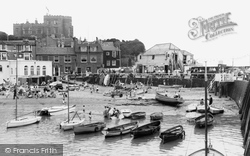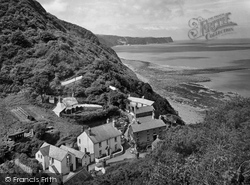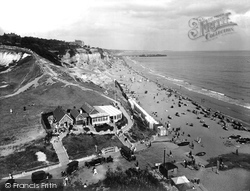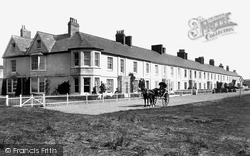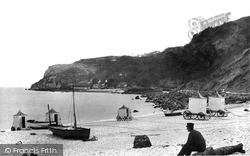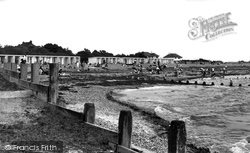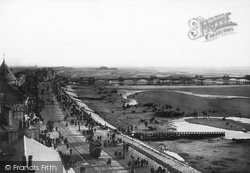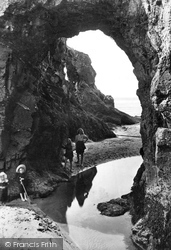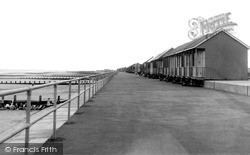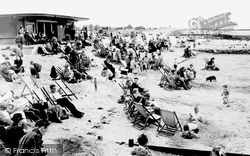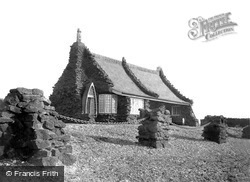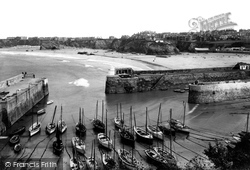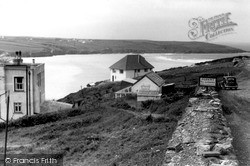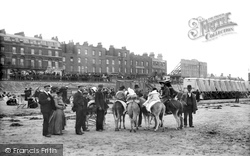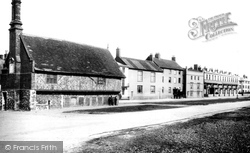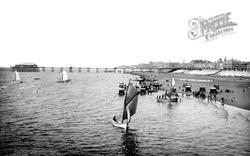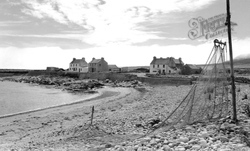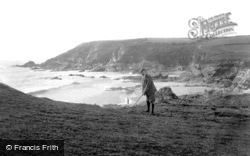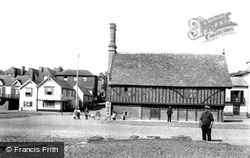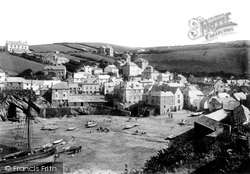Captions
1,131 captions found. Showing results 321 to 340.
Fishing boats and pleasure boats crowd the harbour close under the pier, while holiday-makers throng the beach.
The cliff has a tendency to crumble, and has blocked the path to the beach several times in recent years. The white mass on the hillside in the distance is Clovelly.
Many of the chines, the wild ravines which split the cliff line, were quickly adapted as pleasure grounds and scenic walks down to the beach.
Built on the opposite side of the beach to the harbour in the mid 19th century, Hartland Terrace still has some of its original buildings despite the encroachment of hotels.
Early visitors faced a long climb to Babbacombe after a day on the beaches, but in the 1920s a cliff railway - still in use today - was built, making the journey much easier.
Doubtless state-of-the-art in 1955, these flat-roofed terraced beach huts typify the immense popularity of the post-War summer seaside holiday and day trips, but have long been demolished.
In those days, the beach area would often be a hive of activity, including donkey rides, ice cream and sweet stalls, shell fish and oyster sellers.
Visitors to the great sandy beach at Perranporth can also explore the caves and arches in the cliffs on the west side at low tide.
A tremendous visual change here is that there are now no breakwater defences along the beach. The bathing huts are still there, and so is the glorious sand.
Another view of the beach at Canvey Island shows children busily playing around the many deckchairs. Most of the older holidaymakers are well wrapped up against the cold.
The bungalow was situated on the beach for the convenience of Her Majesty. She often visited on summer days with her entourage of servants and guests.
Low tide has joined together all the sandy beaches in the background, with Tolcarne, Great Western and Towan seen from left to right.
Fern Pit, at the mouth of the Gannel, was owned by generations of Northeys, who also ran the ferry to Crantock, which is in the background on the other side of Crantock Beach.
Holidaymakers enjoy themselves on Margate Beach. Note the prams in the centre of the picture, and that virtually everyone seems to be fully clothed and wearing a hat of some sort.
Little more than a shingle beach protects the Moot Hall. Once it was centrally placed in the town, but the sea has carried away a number of streets, finally pausing here.
Sail boats and bathing machines dominate the beach area between the North Pier and the South Jetty. In the distance we get some idea of the development of this end of the town.
Fishing nets are left out to dry on the cobbles at the top of the beach.
Polurrian Cove lies just north of Mullion Cove itself, and is the town's main beach. On the left is Polbream Point, round which a fine walk leads over Angrouse Cliff to Poldhu Cove.
Here we see the Moot Hall from the beach. The building was once in the centre of a much larger town, but coastal erosion saw much of Aldeburgh lost to the sea.
There is a trading boat on the beach, either discharging coal or loading slate.




